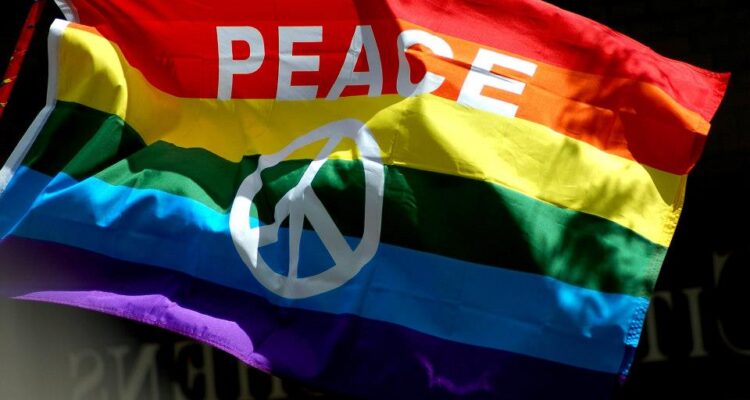At its annual celebration, NYC Pride declared a ban on law enforcement, citing a desire to avoid creating a “atmosphere of fear or harm.”
According to the non-profit group, the ban will be in place not only for this summer’s activities, but for all events until 2025, with any involvement by law enforcement being checked by the Community Relations and Diversity, Accessibility, and Inclusion committees. In a statement, NYC Pride Co-Chair André Thomas said, “This announcement comes after many months of conversation and discussion with key stakeholders in the community.”
In previous years, NYPD officers from the LGBTQ-A community have marched in the parade (usually in full uniform,) and Pride officials thought that this would be inappropriate given that the presence of NYPD officers can feel “dangerous” to community members who’ve experienced excessive force in the past. In a statement, NYC Pride said that “the NYPD is not required to lead first response and security at NYC Pride events.” “We’ll look at all aspects of first response and security that can be delegated to trained private security, community leaders, and volunteers. With a larger budget for security and first response, NYC Pride will be able to develop its own first response emergency plan with private security and provide de-escalation training for first responders as required. Only when absolutely appropriate, as required by city officials, will the NYPD provide first response and security.”
The prohibition, according to NYPD Deputy Commissioner John Miller, is “disappointing” and Tweeted “NYC Pride’s decision to exclude members of the NYPD from Pride events is hurtful and disappointing.” “The oxygen of reform is inclusion and dialogue.” New York City Mayor Bill de Blasio reiterated the feelings of the NYPD on Monday, calling NYC Pride’s decision “a mistake.”
“First and foremost, we must keep people safe, and this has been an incredibly safe, positive event, and we must be mindful of maintaining that,” Mayor de Blasio said at City Hall. “Second, I believe in inclusion, and one of the issues we’re discussing is officers who are members of the LGBT community who want to march and express their pride and solidarity with the community, as well as their desire to keep changing the NYPD and the city. I believe it is something that should be embraced.”
On the other side of the country L.A. Pride had a similar issue with law enforcement at its 2020 celebrations when, last summer, an organized march in support of the black community was cancelled after they “overlooked the direct police involvement that permitting involved” when applying for city permits. Instead, on the day the Pride march was scheduled to take place, an unofficial group was formed to organize a march called “All Black Lives Matter.” L.A. Pride backed the decision of members of the Black LGBTQ community to march without the group.
Keep up with the latest trending music news by following us on Facebook, Twitter, and Instagram
Author: Luke Traina
Photo: Shenkonic


